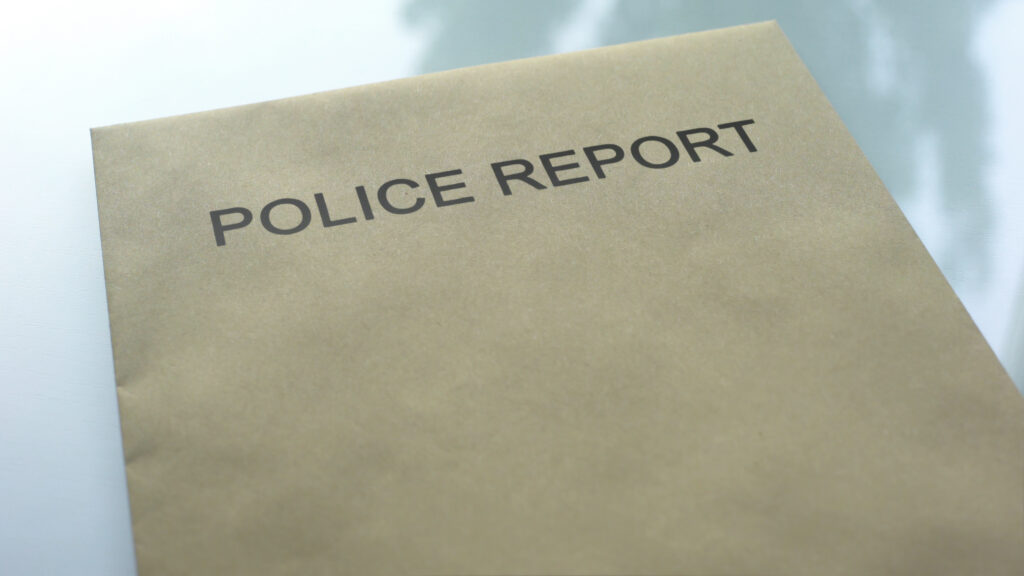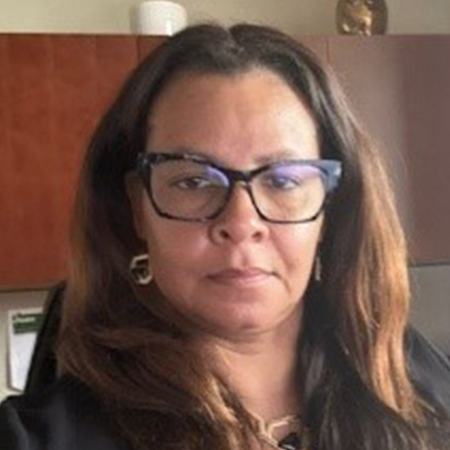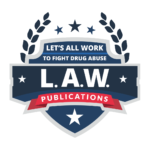
Article
2024 | SUMMER
Writing Reports for Conviction
Part 1 of 3
Daphne Tarver, Donna Fraser, Tiffany Griffin
Article
2024 | SUMMER
Writing Reports for Conviction
Part 1 of 3

Daphne Tarver, Donna Fraser, Tiffany Griffin
Historically, the American public viewed individuals serving in positions of authority with great respect. Elected officials considered their service to the community to be an honor and a privilege. A police officer’s directives or testimony were unquestioned. Over the last several decades, the one-hour evening news programs by the three major networks have evolved into multiple news outlets streaming simultaneous 24-hour coverage.
Combined with the constant flow of information on social media, persons around the world can become instantly informed about an unlimited number of issues. Sadly, the rush by some to be the first to post a report do so at the expense of accuracy. As a result, the public has become more pessimistic and less trusting of others. During this same period, the criminal justice system has experienced huge advancements in technology and forensics, as well as our understanding of factors limiting perceptions and recall. Collectively, this has led to increased critique of every action officers take.
To address this issue, the common approach by departments has been to require officers to champion the mantra ‘Document, Document, Document’ and provide some level of documentation for every action they take. Computer -aided dispatch (CAD) systems have automated some of the more mundane activities and records management systems (RMS) have enabled agencies to automate the reporting of criminal investigative activities. Transitioning to these systems have empowered agencies to rapidly collect, retrieve, and synthesize data. Unfortunately, in many agencies the most important part of an officer’s report, the written narrative, has not evolved in a comprehensive manner.
This article is the first of a three-part series that will discuss the impact of poor coordination in the segmented criminal justice system, importance of the police report, and barriers impacting officer’s ability to compose detailed reports. The second installment will discuss approaches for police leaders and prosecutors to work together, identify critical issues, and develop solutions that will satisfy the needs of all the parties in the criminal justice system. The final installment will identify problems frequently found in an investigative narrative and processes to create comprehensive reporting systems.
It is important to note the purpose of this series of articles is not to cast blame or criticize any of the hard working, dedicated staff serving in law enforcement agencies or prosecutors’ offices. Rather, it is an attempt to articulate the problems and challenges each have and to propose an approach to improve the process and provide a more effective program. To accomplish this, it is imperative police leaders and prosecutors collaborate as partners. This requires open and candid communication to identify issues and develop solutions.
Criminal Justice Non-System
The public generally perceives the criminal justice system as a comprehensive interactive collection of organizations working seamlessly to ensure the administration of justice. The “system” is activated when a 911 call requesting law enforcement assistance is made. If an officer arrests the suspects, other parts of the system are engaged to systematically secure justice. These include magistrates, prosecutors, defense attorneys, bond hearings, grand jury indictments, plea agreements, criminal trials, and ultimately convictions. These events may occur in various courts including recorders, state, superior, appeals, and supreme courts. In other instances, attorneys and courts engaged in civil claims rely on evidence documented in police reports. All look at the report from different perspectives and legal standards that must be satisfied.
The founding fathers intentionally designed the executive, legislative, and judicial branches of government to operate with separate but equal powers. By its very nature, this process is adversarial. As a result, the administration of justice is often referred to as the ‘criminal justice non-system’ where law enforcement, prosecutors, courts, and corrections work in organizational silos. When leaders in each of these branches implement operational practices, there is a tendency for them to focus on their internal operations without considering or coordinating with the other parts of the system to determine how proposed practices will impact their operations.
Importance of the Report
Police officers have a huge responsibility when they respond to a call for service or take a person into custody. Victims can be traumatized from the event for years. Even though defendants are considered innocent until proven guilty, an arrest can affect the rest of a person’s life.
The police report is by far the most important piece of evidence in every criminal case. It is the document of record that is reviewed, examined, and scrutinized more than any other document. Police supervisors, detectives, prosecutors, defense attorneys, judges, jurors, and the media are among those who will deconstruct the police report to expose what it may include or lack.
Every case requires a detailed narrative of the officer’s observations and actions to satisfy the established legal standards. To accomplish this, it is incumbent on the officer to articulate how they had standing to be in the location they observed the offense(s). Second, they must articulate the reasonable suspicion (the facts and circumstances that led them to believe a crime has or was about to occur). Next, the probable cause (facts and circumstances that would lead a reasonable person believe the individual has committed an offense or was possessing contraband or evidence) must be described in detail. Finally, it is the responsibility of the officers to identify, photograph, collect, and record evidence needed to obtain a conviction (beyond a reasonable doubt). This may include a variety of other activities by the officer or detectives. In each of these cases the prosecutor will almost always look to review supporting materials such as photographs, video recordings (i.e. body-worn, CCTV, doorbell), names of persons present, witness statements, and physical evidence.

Benefits of a Good Report
There are multiple benefits of good, well-documented investigative narratives. First, there is a greater likelihood of linking repeat offenders to other offenses. A great report increases the likelihood formal charges in the form of an accusation or indictment will be filed.
There is a greater probability the offender will be forced to take plea agreement. It is not uncommon for a case to take more than two years to be heard in court. During this time, the officer will have responded to hundreds of calls. A well-documented narrative will provide details of the officers’ observations and actions. Without this information, the officer will likely not recall critical information. Those who play the odds of a jury trial are more likely to be convicted. In subsequent civil claims, a well-documented report will increase the ability for persons to receive compensation for damages and injuries.
Barriers to a Good Report
Officers are faced with a variety of issues that impact their ability to produce quality reports. Over the last few years, agencies across the Nation have experienced an exodus of veteran officers. The problem has been compounded by agencies’ inability to recruit and train new officers to fill these vacancies. Many seasoned chiefs recognize that when staffing levels are reduced by five percent, workload begins to be pushed on to other officers. Yet some agencies have experienced as much as 20 to 30% vacancy rates. Many jurisdictions are ‘stacking’ calls, leading to longer response times and limiting the time to compose quality reports.
Because of this, staff from other critical positions such as detectives have been transferred to patrol to cover staffing shortages. One recent study determined “calls for service that result in an incident report have a significantly higher completion time than other types of calls.” Such that, “calls for service that require the completion of an incident report generate most of the reactive workload of patrol officers, even if they frequently constitute a minority of calls.”(1)
In another study, researchers determined officers do not have time or are pressured by supervisors to complete the reports. In addition, officers did not spend enough time to process the scene, obtain testimonial and visual evidence, or interview neighbors. When officers experienced long periods between the time they responded to the call and when they begin to complete the report, they often have difficulty reconstructing the event, even if they have detailed notes.(2)
Long held organizational culture issues continue to impact officers’ performance. Statements made in training courses decades ago such as, “Write as little as possible to describe what the suspect did” continue to persist. Unfortunately, while these statements ‘may’ describe the probable cause for the arrest, they will not support the legal standard required for a conviction.
First line supervisors are responsible for ensuring officers are performing to established standards. Those serving in agencies with a high call volume are constantly pressured to prioritize and push officers to quickly resolve calls for service and move to the next call. As noted earlier, writing the report is the most time-consuming function for officers. When supervisors and their officers are forced to prioritize answering calls over documenting their actions, the quality of their reports and the administration of justice declines. Properly addressing this will require a seismic shift in operations. First, leaders must recognize the judicial standard for police officers to properly document their reports. Second, it is imperative leaders view public safety as an investment in the economic and community development of their community. Agencies must be provided the support and resources they need to attract, develop, and retain talented staff who can perform to established standards. Communities that do not support these initiatives will continue to experience increases in crime and reductions in the quality of life.
Consequences of a Bad Report
When officers do not provide a report with sufficient information to justify the standard for a conviction, beyond a reasonable doubt, prosecutors may be forced to offer the defendant a plea agreement for a lesser charge to obtain a conviction. In other cases, there is a greater likelihood the case will be dismissed. When this occurs, the system has failed to serve the needs of the victim. The investment of time and other resources on the investigation, arrest, writing the report and court appearances are lost. Those persons who have the charges dropped have another opportunity to continue their criminal behavior.
Second, most people rarely have an encounter with police. When a victim picks up a report and learns the officer did not document the details of what occurred, they perceive the officer did not care enough to document what happened. When victims learn the offender will not be prosecuted, many will feel as though they have been victimized again. For these individuals, this event was important and this failure will influence their perception of all officers.
The next installment of this series will identify way leaders can work together to identify issues associated with investigation report narratives and develop solutions.
[1] Chartrand, E., & Verret, E. (2023). “Beyond the scene: The importance of time consumed on incident report task components in workload-based patrol allocation and deployment assessments”, The Police Journal, p. 12, https://doi.org/10.1177/0032258X231192009.
[2] Ye, Han and Natalie Monas,” Recreating the Scene: An Investigation of Police Report Writing”, Journal of Technical Writing and communication, Vol. 50, Issue 1, 2020, p. 41.

Daphne Tarver
Daphne Tarver is Chief of the Investigations Division of the Gwinnett Solicitor-General’s Office. With 28 years of law enforcement experience, Chief Tarver holds a criminal justice technical certificate from Miami Dade College and holds numerous advanced certifications as well as serves on multiple boards and task forces.

Donna Fraser
Donna Fraser is the Deputy Chief Investigator for the Dekalb County Solicitor General’s Office with 30 years of experience with the State of Georgia and South Carolina, specializing in internal affairs and criminal investigations. She holds a Bachelor of Arts in Criminal Justice from St. Leo University.

Tiffany Griffin
Tiffany Griffin is the Chief Investigator for the DeKalb County Solicitor General’s Office. She has 23 years of law enforcement experience and holds a Bachelor of Arts in Criminal Justice and a Minor in Psychology, specializing in Criminalistics and a Master of Business Administration from Clayton State University.












